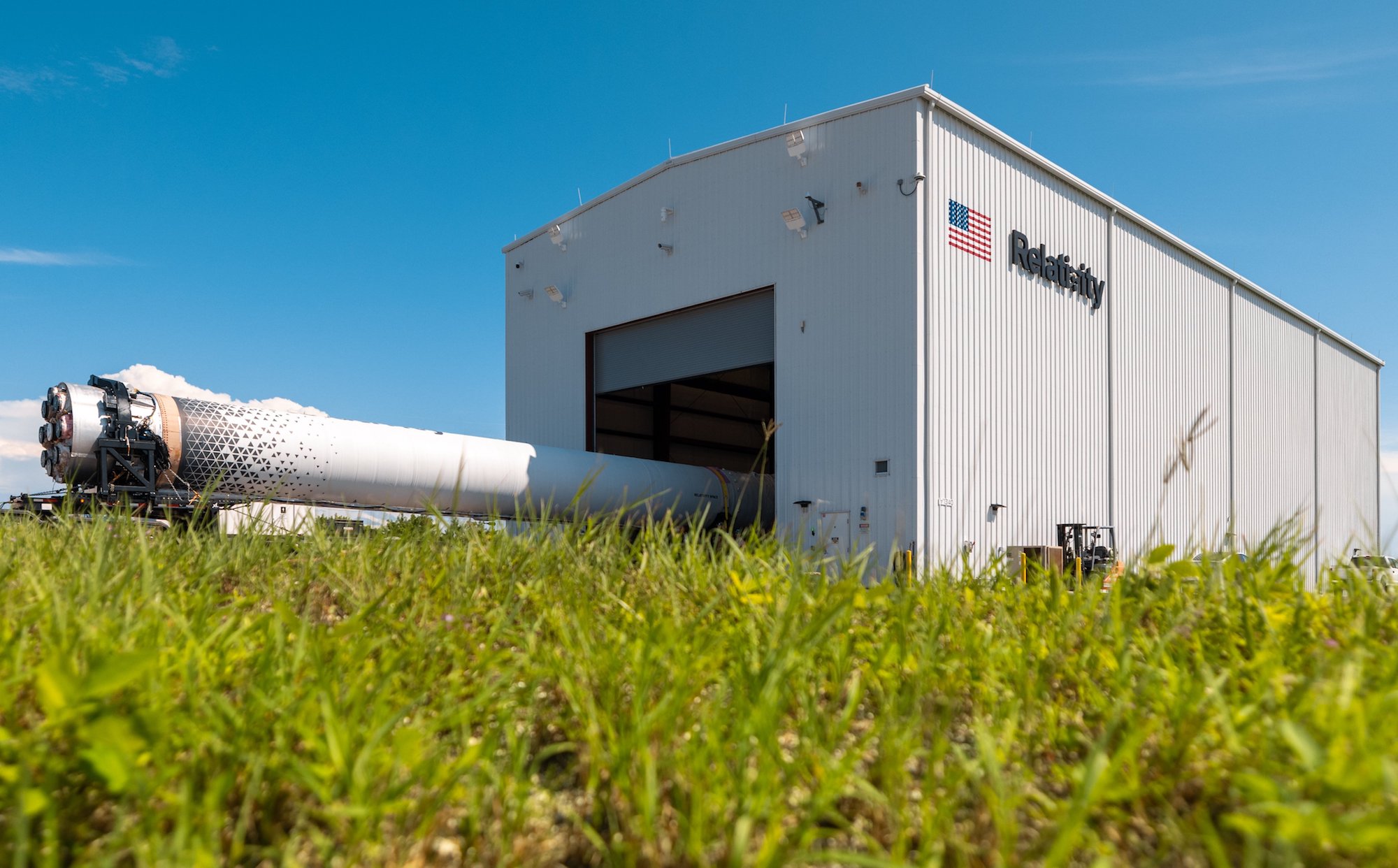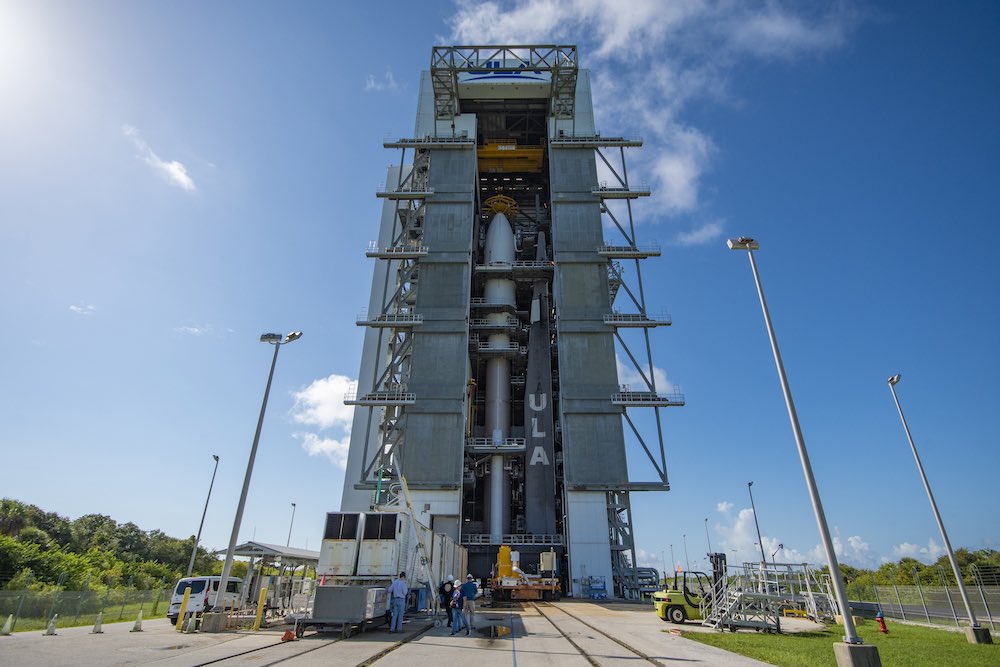Florida’s Space Coast continues to make preparations for the extremely powerful and slow-moving Hurricane Ian, with officials rolling rockets back to the safety of hangars and delaying launches until the storm passes.
The massive storm made landfall near Fort Myers Wednesday afternoon, coming in at just a few miles per hour shy of the Category 5 threshold. Forecasters expect Ian to travel in a northeastern direction across the state, with major storm bands hitting the Space Coast — the section of Florida’s east coast that includes Kennedy Space Center and Cape Canaveral Space Force Base. That means strong winds and rain are all but likely, and the threat of storm surge and flooding remains distinct.
By Wednesday afternoon, Cape Canaveral Space Force Station and Kennedy Space Center entered HURCON I, indicating that 50-knot sustained winds are likely within 12 hours. In light of these impending conditions, all non-essential facilities closed and the majority of staff were sent home. NASA also made the critical decision to roll back the Space Launch System rocket and Orion spacecraft from the launch pad to the Vehicle Assembly Building (VAB) on Monday, giving employees enough time to safely move the massive launch system ahead of the storm.
The rollback, while indisputably necessary, will affect possible launch opportunities for the Artemis I moon mission. It’s looking likely that the next possible launch window will be no earlier than October 17.
In addition to the stacked SLS, NASA also secured Psyche, a spacecraft that will explore an asteroid of the same name, inside a shipping container located in the Payload Hazard Servicing Facility. Relativity Space, a private company planning on launching its majority-3D-printed Terran 1 rocket sometime this year, also moved the rocket’s first stage back to a company hangar ahead of the storm. Relativity’s Launch Complex is located on Cape Canaveral.

Image Credits: Relativity Space/Trevor Mahlmann
NASA also delayed the launch of Crew-5, which will carry a crew of four (including NASA astronauts Josh Cassada and Nicole Mann, Japan Aerospace Exploration Agency astronaut Koichi Wakata and Russian cosmonaut Anna Kikina) to the International Space Station. The launch was expected to take place on October 3 but has now been pushed back to no earlier than October 4. NASA warned that the launch date could be adjusted again depending on the impacts of the storm. SpaceX had already secured the Falcon 9 rocket inside its hangar.
“The Dragon Endurance spacecraft is currently mated to the Falcon 9 rocket and safely secured inside SpaceX’s hangar at Launch Complex 39A,” the space agency said in a blog post. “Kennedy Space Center is also making preparations across the spaceport to secure other property and infrastructure. After the storm progresses, teams from NASA and SpaceX will evaluate the potential impacts to the center and determine whether to adjust the mission timeline further.”
United Launch Alliance also delayed the launch of two SES telecommunications satellites aboard the Atlas V rocket, with both spacecraft and the launch vehicle secured inside the company’s Vehicle Integration Facility. The launch was expected to take place on September 30, but ULA is eyeing a possible October 4 launch date.

Image Credits: United Launch Alliance
Florida’s Space Coast is no stranger to hurricanes, but Hurricane Ian is one of the strongest to hit the state in years. The storm has already caused catastrophic damage in Cuba; the island temporarily experienced a total loss of power as a result of the storm, leaving 11 million people in the dark.
Florida’s Space Coast braces for Hurricane Ian by Aria Alamalhodaei originally published on TechCrunch
from TechCrunch https://ift.tt/JuqTlEr
via Technology
Comments
Post a Comment